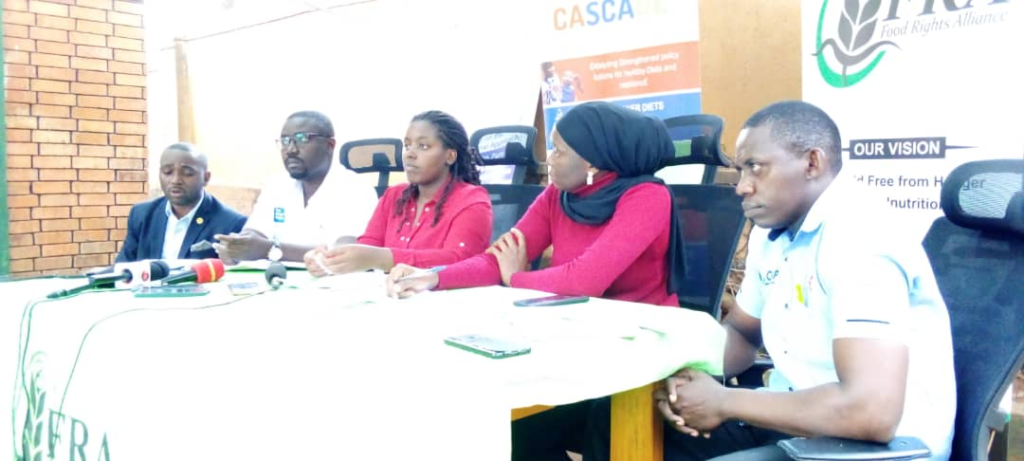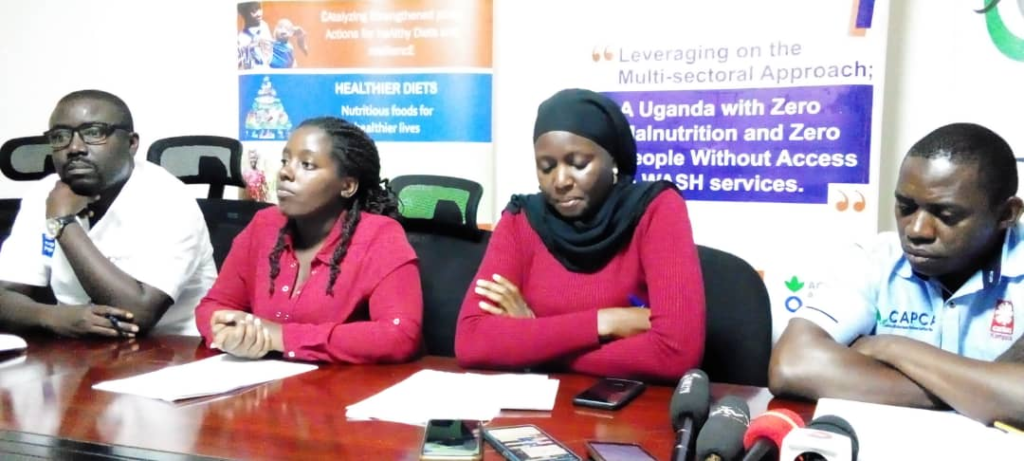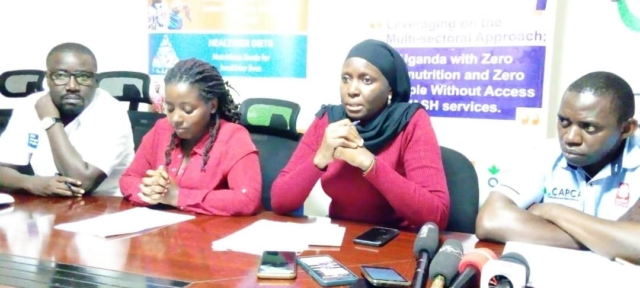
By Jumah Kakomo
Civil Society Organisations (CSOs) have expressed concern regarding the challenge of food loss and waste , and food insecurity in Uganda.
Addressing the media on Friday 29 September 2023, at Food Rights Alliance (FRA) headquarters Mengo Kampala Claire Atukunda the alliance program manager noted that globally, over 931 million tonnes of food, accounting for 17% of the total food produced globally is wasted each year in households, retail outlets as well as restaurants or other food services.
She says food loss and waste greatly increases food insecurity and is a major contributor to the climate change crisis, nature and biodiversity loss, and pollution. “Hence, the UN sustainable development goals (SDGs) target to reduce the global food waste at the retail and consumer levels as well as food losses along production and supply chains y half, by 20230,”Atukunda said.
State of food loss and waste in Uganda
Atukunda revealed that according to the UNEP food waste index report 2021, every Ugandan throws away an average of 103kg of food each year, amounting to a total of 4,546 metric tons of food wasted by the country annually. Restaurants and other food services in Uganda waste an average of 1,224 metric tonnes/year while retail outlets waste up to 692 tonnes of food.
“Altogether, the country losses about 6,462 metric tonnes of food from retail shops to consumption,”Atukunda stated.
She noted that in addition, farmers lose more than 30-50% of thier crops, particularly grain, fruits, and vegetables in post-harvest losses (FAO, 2019) while up to 80% is anticipated to be lost on farm. Food loss and waste is also evident in Uganda’s livestock sector, with the country losing up to 23% of the total meat produced and about 14% of the total milk produced (Wesana etal.,2019).

She adds that food is wasted in many ways: fresh produce that deviates from what is considered optimal in terms of shape, size, and color and is removed from the supply chain during sorting, produce with evident pesticide residues that is rejected by consumers; foods that are close to, at or beyond the “best-before” date that are discarded by retailers and consumers as well as the large quantities of food leftovers, and food that is unused and discarded from household kitchens and eating establishments.
Impact of food loss and waste
- On household food security and nutrition.
Allan Ssebulime, a board member of PELUM UGANDA says “while Uganda potentially produces enough food to feed the population, almost 10 million Ugandans are food insecure”.
He revealed that food loss and waste escalates food insecurity and malnutrition. It is unfortunate that while one region of Uganda may be overflowing with food and experiencing high levels of food loss and waste, another is grappling with hunger. With the high level of food wastefulness, it is a non-wonder that almost 10 million Ugandans are still food insecure, 26% of children under 5 in Uganda are stunted, 53% are anemic, and 64% of children spend a full day in school without food.
“In addition, further , overweight and obesity are escalating among both children and adults because many people cannot afford healthy diets,”Ssebulime stated.
- On the economy
“Every food trader in Kampala wastes up 7.6kg of food each day”.
Ssebulime says food loss and waste doesn’t only waste food but also squanders valuable resources used to produce the food including capital, lobor, Land, and human resources. As such the cost of food waste is cumulative. Globally , the 1.3 billion tons of edible food lost and wasted annually throughtout the entire supply chain amounts to an estimated $936 billion, not accounting for the social and environmental costs borne by society …






